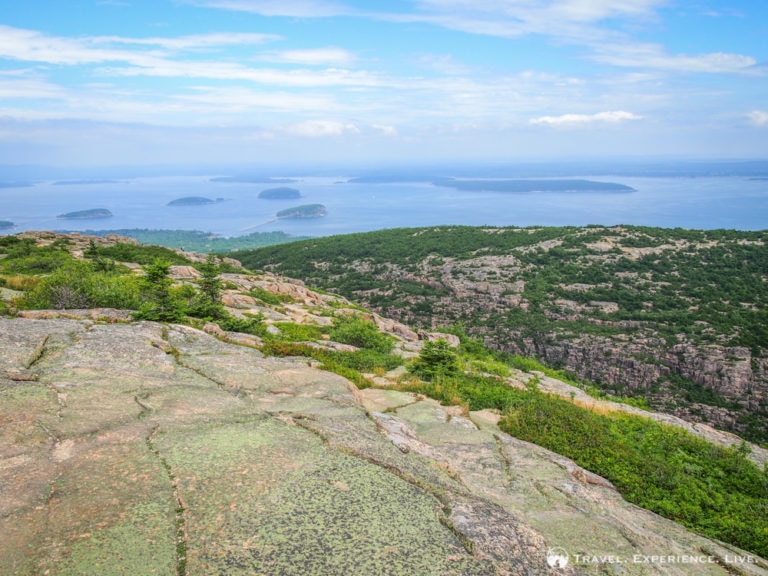Mental Health, Authenticity & the Race Gap in Outdoor Spaces – A Chat with Mountain Mic
When I scroll through the Instagram of Mountain Mic, an L.A.-based entrepreneur and hiker, I don’t see your typical outdoor feed of photos showcasing nature’s biggest and most beautiful places. Rather, it’s the man in these landscapes that strikes me most.
It’s the vibrant clothes and the way he moves in his photos, almost in a dance-like fashion, that captures my attention. And then I dig a little further, and what I then notice is the transparency. ‘Wow’, I think, ‘there’s actually substance in these captions.’ Let’s see what this guy is all about.
Who Is Mountain Mic?
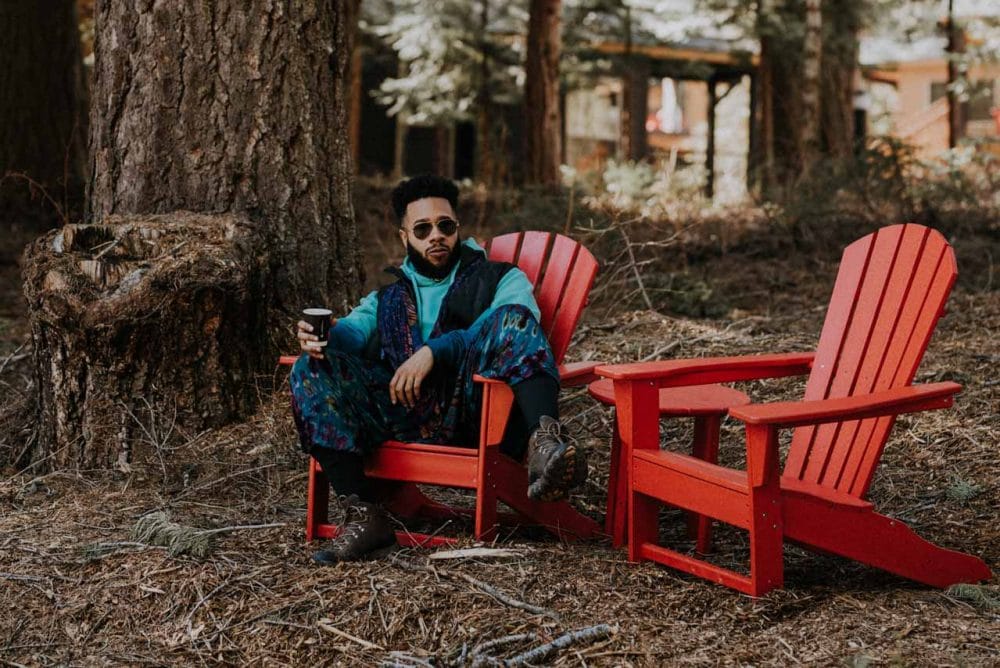
Mountain Mic is a persona that came during the years Chris was dealing with a criminal and civil trial against his sexual abuser. He’s quite open about his past traumas and his journey in healing, particularly with how hiking has been such a significant part of the process.
When I ask about the name, Mountain Mic, he explains that the inspiration comes from a pizza place he once frequented called ‘Mountain Mike’. Mike turned into mic, short for microphone and his tagline, ‘Finding your voice while overcoming insurmountable odds’ was born. The mic represents the concept of finding your voice while the mountain represents insurmountable odds.
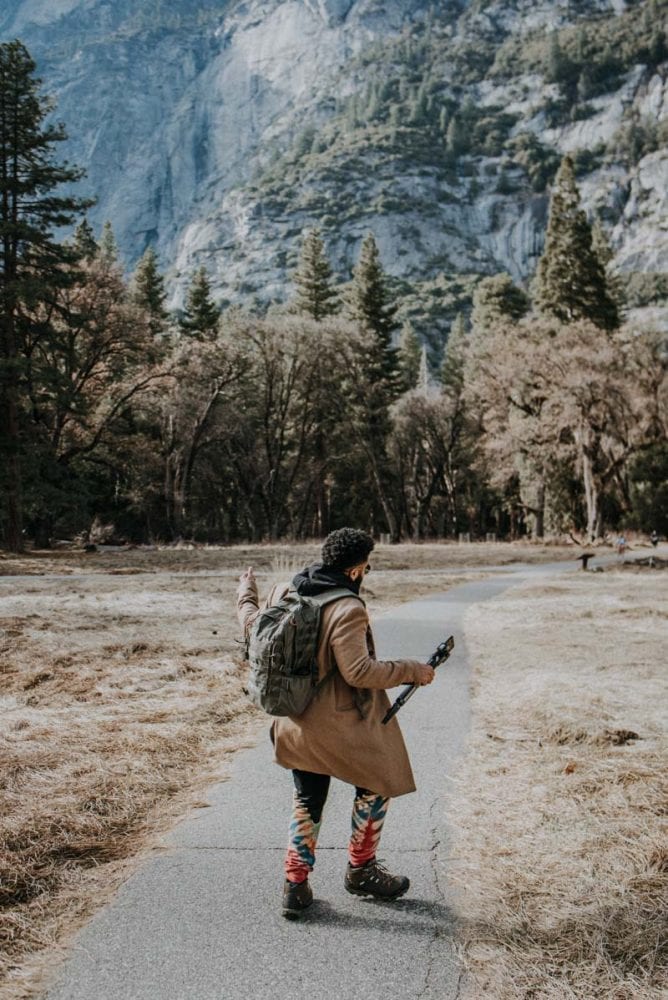
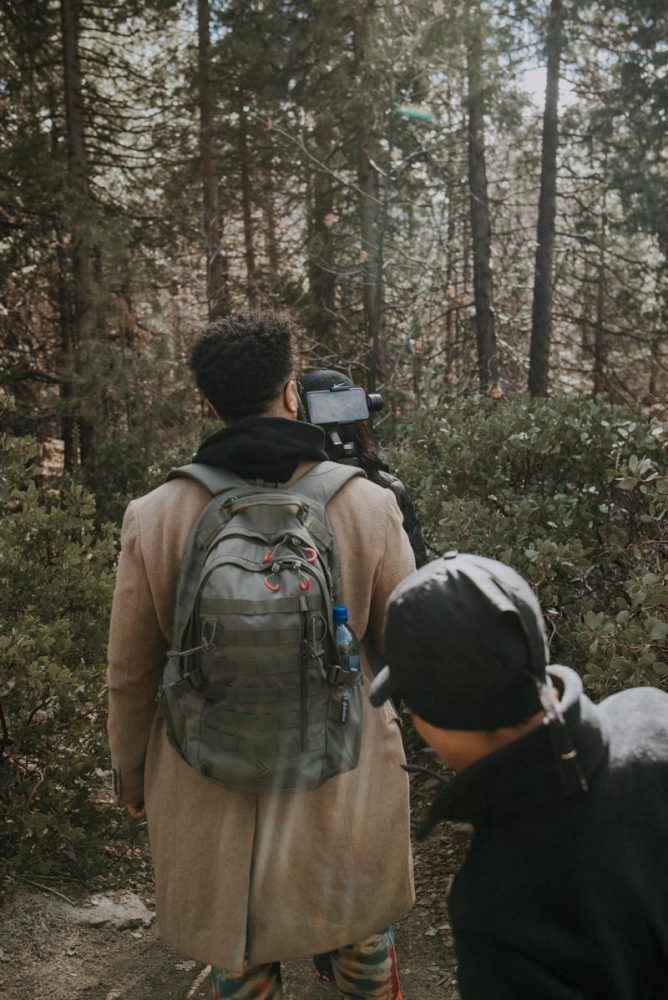
Hiking, From Physical Exercise to a Mental Getaway
Hiking began as a form of exercise for Mountain Mic but soon became more than a physical activity.
“I really started leaning into hiking as a form of escapism… particularly dealing with the trail. Just being in my own house was a trigger. I felt like the walls were closing in on me and I had all of these negative thoughts.”
He further explains being able to take a drive to a nearby mountain helped him get away from the surroundings and immediate stimuli, allowing him to process things and figure out next steps to take in his journey.
“I don’t think I would be here today [without hiking]… It gave me a healthy coping mechanism. Hiking gave me time to process what happened and really explore my feelings.”
Mountain Mic
As we continue chatting, Mountain Mic goes on to describe how it wasn’t until a few years later that he began viewing hiking as therapy. From a way to lose weight at first, hiking evolved into a form of refuge, which turned into a hobby when he began leading group hikes in 2016.
He describes his realization that hiking was therapeutic for him. “Whenever I wasn’t feeling right inside… that always correlated with me not having gone hiking in quite some time.”
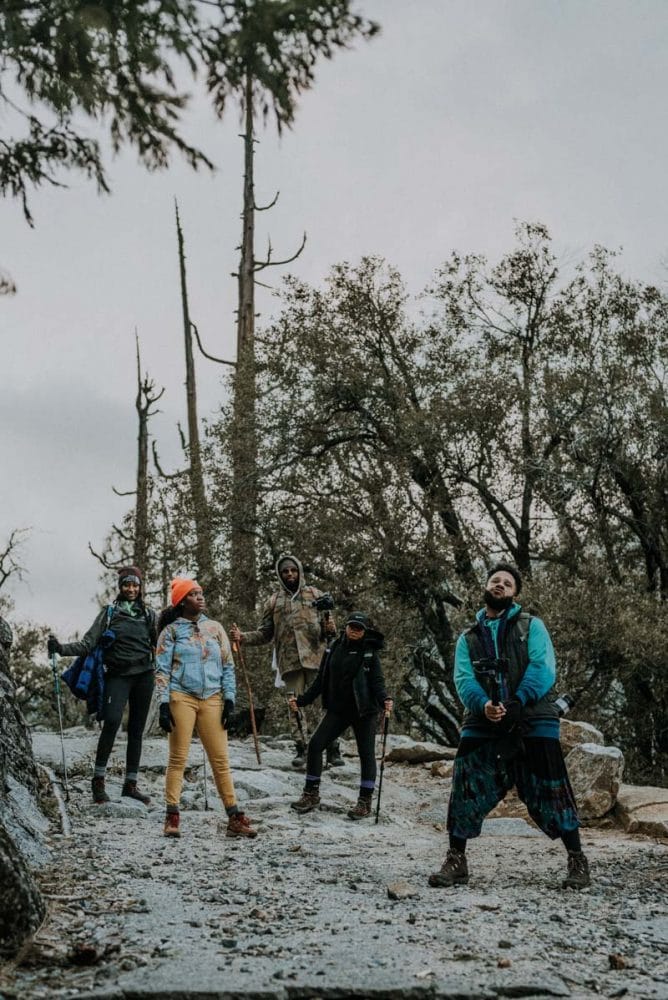
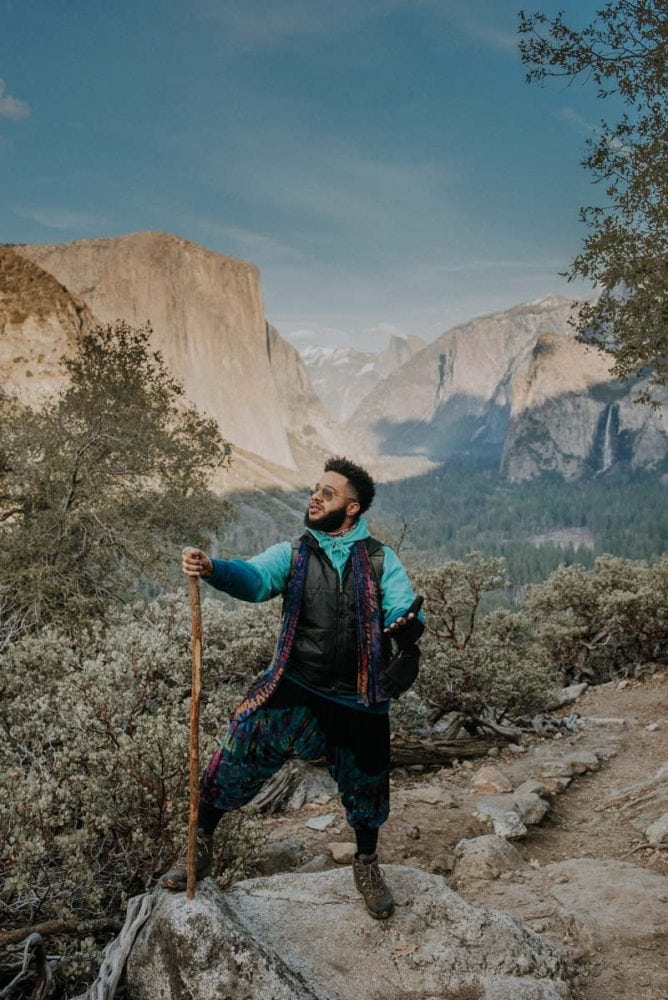
Mountain Mic openly explains that, in 2019, he spent some time in an intensive outpatient mental health program. He recalls a conversation with a counselor discussing hiking and being out in nature and how he hadn’t gone hiking in several months.
Soon after, Chris grabbed his camera and headed to a local spot for a hike. He began filming himself, talking about his mental health journey. “I thought I had it all figured out, but I was wrong. I needed to explore more of my childhood and whatnot. That’s when, I think, hiking evolved into this place of therapy for me,” he tells me. “I knew that it was therapeutic because I would bring other people out there and we would talk and I was like, ‘there’s something there.’”
I ask Chris if it’s hiking specifically that brings him that therapeutic sense or if other outdoor activities have the same effect. What he likes about hiking, he explains, is that it doesn’t require another level of skill that, say, mountain biking or rock climbing would. There’s less of a need to focus and your mind is more free to wander, process, and do its thing.
“I think of our brain like eyes with blinders on. You’re only seeing what’s right in front of you and not seeing everything in your peripheral. Hiking allows those blinders to come off and allows you to start looking at your entire life. You’re given time to think.”
Mountain Mic
Three Purposeful Hiking Ventures
Mountain Mic’s passion for hiking and desire to connect with others, helping them to find their own purpose in life, has resulted in three branches of his hiking business.
TrapHike, “The most lit hike group you’ve ever been to”, gathers a community of mindful men and women to have meaningful conversations amidst nature and music.
His second venture, DestinationHL (HikeLife), “the ultimate travel hike experience”, allows attendees to experience unique landscapes and connect with one another while focusing on wellness and purpose.
Most recently, Chris created Occupy: Hike to show solidarity with the BLM movement, particularly within outdoor spaces where there’s a gap between minorities and their representation outdoors. Occupy: Hike aims to amplify voices of the Black community and show tribute to the lives lost due to systemic racism.
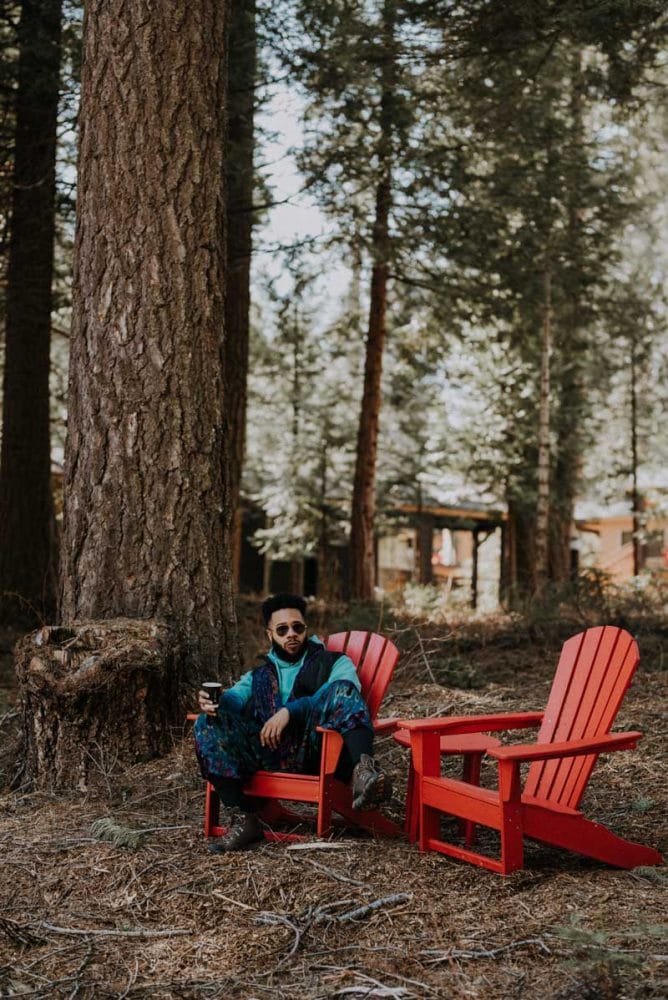
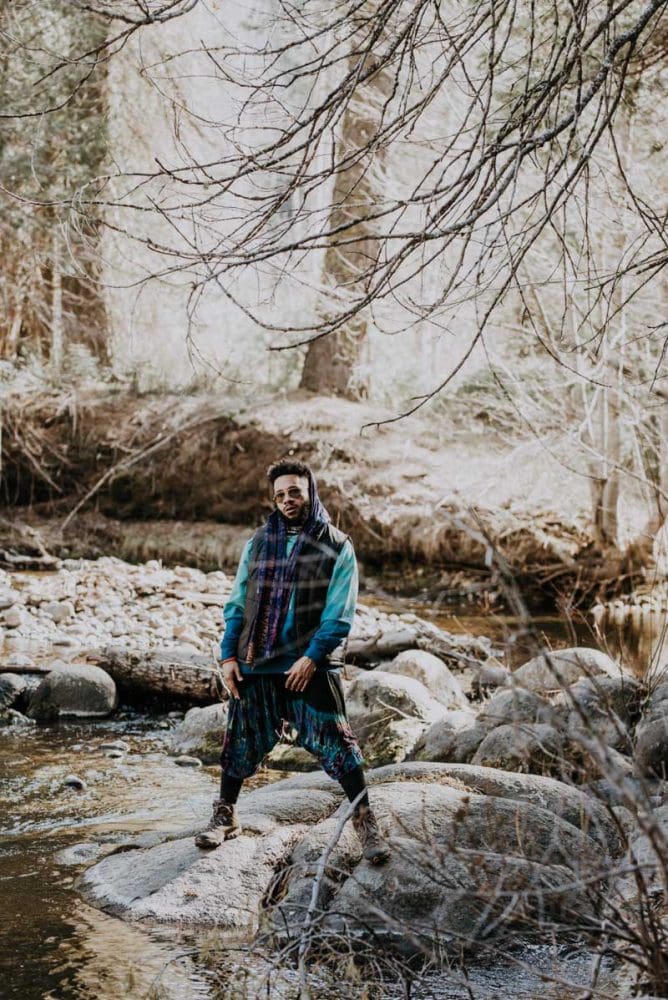
Microaggressions & Inequality in the Outdoors
As a Black man on the trails, experiences of microaggressions are not uncommon for Mountain Mic. He describes a type of surprise people sometimes have when they see him on the trails, assuming he may need help with navigating the trails by asking him “Do you need help?”
He also describes people changing their vocabulary in trail greetings to what they think would be African American Vernacular English, with things like, “What’s up, bro?” after he greets them with a “Hello” or “Good morning”. “It’s a form of microaggression to me.”
With a background in marketing, Chris takes on a business standpoint to explain to me some of the reasons why there’s a gap between people of color and outdoor spaces.
Historically, national parks were places for white middle and upper class people to escape the city and be in nature. Outdoor companies started off with a very niche market that targeted white outdoor recreationists.
Chris explains, “There is that history, which hasn’t been addressed, and on the other side, there’s a legitimate fear of nature among Black people because of lynching. There’s a fear of being caught on backroads and in sundown towns, not being able to stop at certain places with fear that you could be killed because you may look at somebody and they may take it the wrong way.”
A Near-Absence of Black People in Outdoor Marketing
Not only are outdoor spaces often uncomfortable or seen as unsafe for Black people, but they are also underrepresented in outdoor media. “We’re not used to seeing ourselves in the market or advertising,” Mountain Mic further explains.
But despite an unaddressed history that’s shaped the disproportionate statistics between minorities and nature, Chris goes on to talk about how businesses are leaving money on the table by not marketing towards people of color. Particularly Black people are among the top consumers. “It’s not a money thing. Jordan’s cost over 200 dollars,” he says, giving an example, “Buying hiking boots ain’t sh*t if I’m buying Jordan’s every other month.”
Mountain Mic thinks that companies are making strides and showcasing an effort to be more inclusive. There’s plenty of room to grow in terms of social justice within the outdoor industry, however.
Chris also describes his experience as an outdoor content creator in terms of brand deals and influencers. He tells me about the facilitator in an outdoor engaging group on Instagram refusing to engage with his content regarding Black Lives Matter and further expressing how they chose not to speak up about racial injustices due to brand contracts.
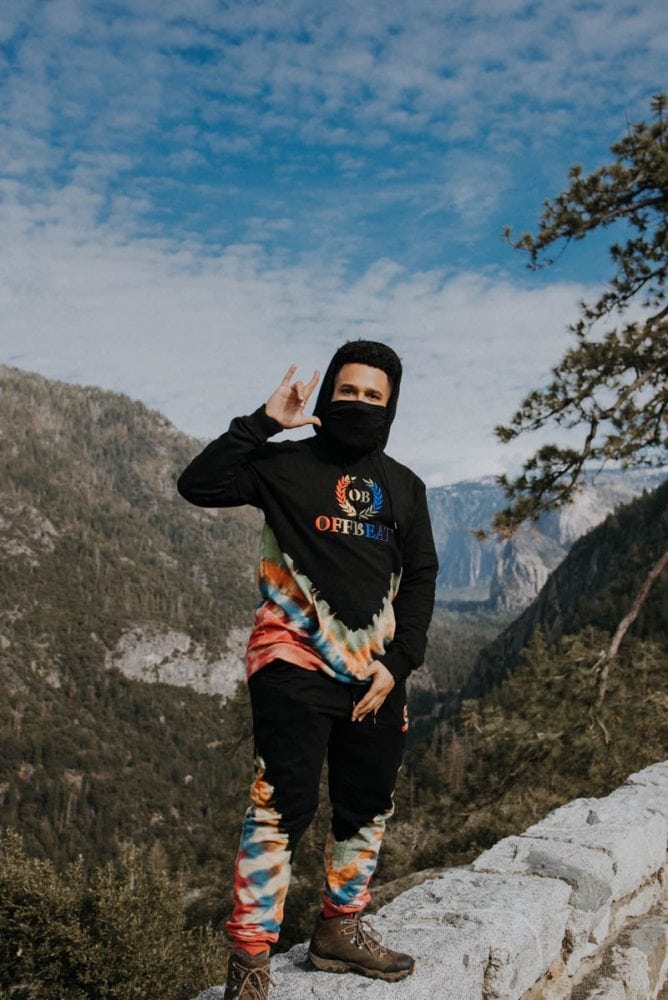
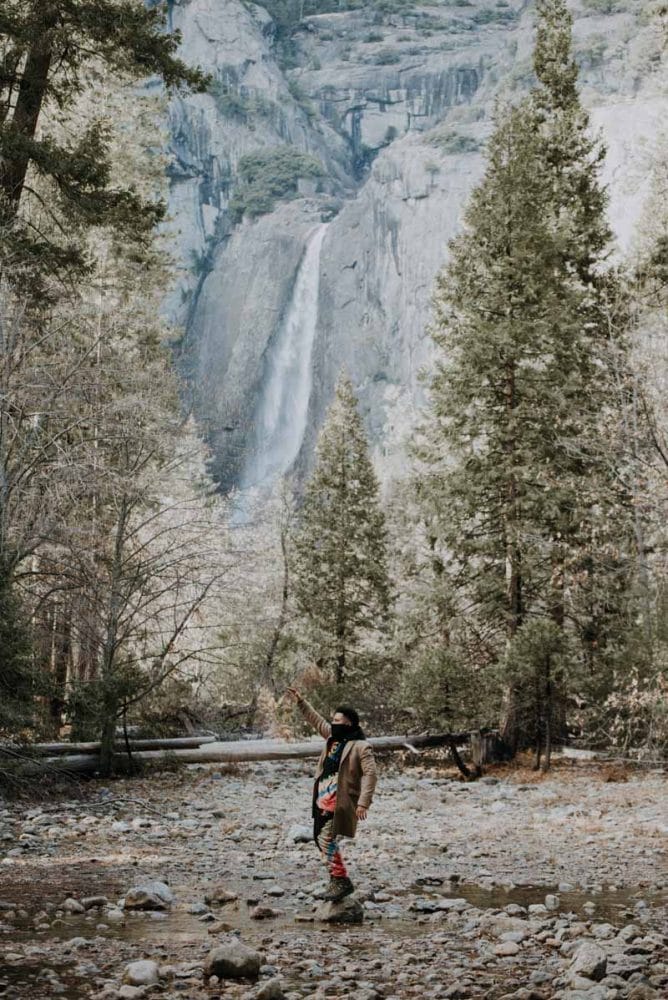
While evidently disturbing, Chris goes on to describe what it’s like to be a Black content creator in an industry that’s overwhelmingly white.
“From a metrics game and content-wise, I didn’t see any difference. Why do they [the IG engagement group leader] have brand deals and I don’t? I make equally great content and I have a message behind mine.”
His reflection is a reminder of what it means to have white privilege, for questioning whether or not you (can) have brand deals because of your skin color is something white people never have to deal with.
Authenticity, Transparency and Vulnerability
Through our conversation, Mountain Mic openly answers my questions honestly and authentically. And authenticity is one of the topics I was excited to discuss with him in the first place. I describe my interest in why he chooses to be open about his past traumas and mental health journey to thousands of strangers online.
“Through my life journey, what has worked for me is being my authentic self. The more I’m transparent and vulnerable about my experiences, the more I see myself elevate and become successful.”
Mountain Mic
In a world where many of us are consumed by social media, it’s common for users to feel ‘imposter syndrome’. Many people tend to doubt their achievements, often due to comparing themselves to others in number games on social media (likes and followers). In turn, it’s not uncommon for people to showcase their ‘best selves’ or their ‘best moments’ on social media platforms, causing many to showcase only select bits of themselves.
“Transparency and vulnerability are a superpower of mine. I’ve been able to see what being transparent and vulnerable about my experiences means to other people and how that’s helped them. People reach out and divulge something personal about themselves because of the comfort I have in being vulnerable. It creates a safe space.”
And isn’t that the great part of social media, the part that makes us feel connected in this world, to have a sense of community and an opportunity to find like-minded people?
The Universal Rejuvenating Benefits of Being Outdoors
It’s not uncommon for people who recreate outdoors to describe nature as being therapeutic. Scientifically, it’s been shown that the outdoors can provide many cognitive and mental health benefits, from reducing anxiety to increasing creativity, memory capabilities and focus.
I hope for a future where outdoor spaces provide a safe, comforting, healing, inspiring and rejuvenating space for everyone. I hope for a future where outdoor influencers and content creators can open up about their experiences and in turn, inspire more people to get out there. Mountain Mic, I believe, is a man who is doing just that.




